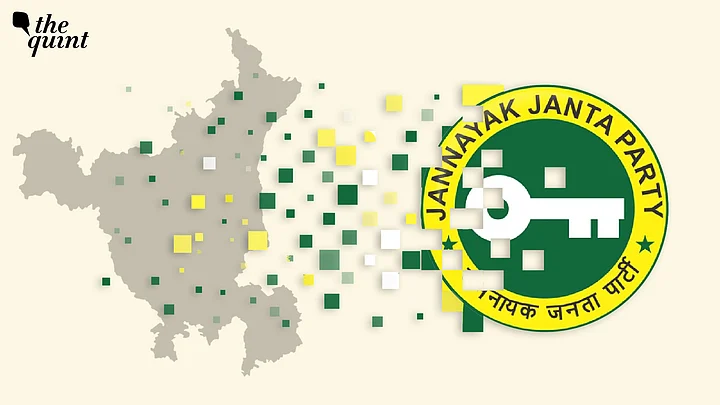While the BJP has come out as a clear winner in Haryana, the biggest loser this time is Dushyant Singh Chautala’s Jannayak Janta Party (JJP).
The party, which won ten seats in the 2019 Assembly elections, has not won a single seat this time—with its vote share dwindling from 14.9 percent in 2019 to 0.91 percent in 2024.
Dushyant Chautala, who helms the JJP, lost his deposit in the Uchana Kalan Assembly seat. He was the fourth runner-up getting a meagre 7,900 votes, as per the Election Commission (EC).
During the 2019 elections, when neither the BJP nor the Congress had crossed the majority mark of 45 seats, Dushyant Chautala’s JJP had emerged as the kingmaker. At that time, it threw its weight behind the BJP — with Dushyant appointed as Deputy Chief Minister and JJP serving as a junior partner in the BJP-led government in the state for 53 months.
It was in March this year that the BJP-JJP alliance collapsed, after which, Nayab Singh Saini replaced ML Khattar as the chief minister. For the 2024 Vidhan Sabha elections, JJP had contested in alliance Azad Samaj Party (ASP), founded by Dalit activist and MP from Uttar Pradesh’s Nagina Chandrashekhar Azad. Yet, JJP has faced decimation in Haryana.
Why JJP was Decimated in Haryana
JJP was formed in December 2018 following a bitter feud between Ajay and Abhay Chautala—sons of Indian National Lok Dal (INLD) supremo Om Prakash Chautala. In the Vidhan Sabha elections that followed, INLD was wiped out from Haryana. The party, which had won 19 seats in the 2014 elections, couldn’t retain any in 2019. Its vote share plummeted from 24.2 percent in 2014 to 2.5 percent in 2019, indicating that INLD’s core base of Jat votes had switched to JJP.
In the 2024 Assembly elections, JJP seems to be facing the same fate as its precursor. A reason for this could be JJP’s on-and-off alliance with the BJP, which alienated a significant proportion of Jat voters, especially during the Farmers’ Protest.
Jats, who are a dominant community in Haryana, have been wary of the BJP for the past few years. The Jats’ growing discontent with the JJP may have propelled them to vote for the Congress; the party's campaign being led by former chief minister Bhupinder Singh Hooda. A chunk of the JJP's votes may have also gone back to the parent party INLD.
Another reason could be JJP being unable to fulfil its promise to increase the old age pension to Rs 5,100 per month. The issue was also central to the campaigning of JJP, INLD and the Congress this time around.
Who Did JJP's Seats Go To?
This time, while the Congress has improved its seat tally marginally — from 31 seats in 2019 to 37 seats in 2024, the INLD too has gained two seats. Six of the ten seats, that JJP had won last time, have gone to Congress while the remaining have gone to the BJP.
JJP’s alliance with Chandrashekhar Azad’s party also didn’t seem to bear any fruit. A chunk of the votes ASP was hoping to get went to the Bahujan Samaj Party (BSP), which was in alliance with INLD.
The JJP would now face an existential crisis and there would be pressure to merge back into the INLD to protect the Chautala family legacy.
(At The Quint, we question everything. Play an active role in shaping our journalism by becoming a member today.)
